The next class of “greenhorns” – the Class of 2028 – is preparing to become part of the University of Texas. Since I’m asked about this on occasion, below is some friendly advice for UT freshmen. I hope some of it is helpful.
Imagine your upcoming college experience as something packed into a great, mysterious box – wrapped in burnt orange paper, of course! – ready to be opened and explored. Surprises, adventures, challenges, and good times are waiting inside. The wrapping peels off easy enough, but before you open the box, you notice a couple of phrases stenciled on the side. They’re found on lots of packages, offer both caution and counsel, and neatly summarize much of the well-meaning advice given to college freshmen:
A college education isn’t something that happens to you. It’s something that you make happen. Once the school year begins, no one will check on you each morning to be sure you’re on time for class or ask if you’ve finished your homework. You’ll need to find ways to energize and motivate yourself. In other words, batteries aren’t included. And while the courses you’ll take to complete a degree were designed by your professors, how much you learn from them – in fact, what you take away from your entire college experience – is entirely up to you. Think of the University of Texas as a large community loaded with world-class resources: professors, counselors, tutors, fellow students, libraries, laboratories, residence halls, student organizations, athletic facilities, museums, and theaters, all at your disposal to help build and shape your college education. But this won’t happen by itself; some assembly required!
This isn’t Temporary
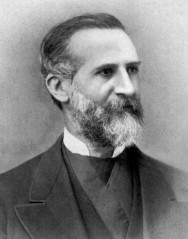 When UT first opened its doors on September 15, 1883, chemistry professor John Mallet (photo at left) told the students, “You frequently hear the phrase used, coming to the university, not remembering that you are the university.” The same holds true today. For now, you’re technically an entering freshman and it’s common to say that you’re “coming to,” or “enrolling in” UT. But on the first day of the fall semester, when you’ve entered a classroom, found a seat, and the professor begins your first ever college class, at that moment you will, in part, be the University of Texas.
When UT first opened its doors on September 15, 1883, chemistry professor John Mallet (photo at left) told the students, “You frequently hear the phrase used, coming to the university, not remembering that you are the university.” The same holds true today. For now, you’re technically an entering freshman and it’s common to say that you’re “coming to,” or “enrolling in” UT. But on the first day of the fall semester, when you’ve entered a classroom, found a seat, and the professor begins your first ever college class, at that moment you will, in part, be the University of Texas.
Welcome to the community! Though you may only be on campus for a few years, the experiences you have and the friends you make will forever be with you. This isn’t temporary. You will always be a part of the University, and it a part of you.
Be a Sponge
Classes, homework, and library books! Concerts, plays, and intramural sports! Research papers and lab reports! Weekend parties, Longhorn Runs, late night road trips to someplace fun! Football rallies and spring break tans! Study groups and final exams!
The UT campus could not be a dull place if it tried. Gathered here are more than 50,000 students from all parts of the globe, taught by a distinguished faculty whose research is literally creating the future, and assisted by a team of administrators, librarians, custodians, architects, curators, counselors, landscapers, chefs, and many, many others who make sure that everything is running smoothly. There are more than 1,000 student organizations, visits by famous authors, entrepreneurs, and world leaders, musical performances by accomplished virtuosos, Broadway shows in the Bass Concert Hall, and exciting athletic events year round. You didn’t come to Austin to hide in your room. Get out there, be a sponge, and soak it up!
There’ll never be enough time to experience everything. Seek out the student activities that interest you, visit the campus museums, attend concerts and special lectures, volunteer for a public service project, and purposely meet others who are different, whose culture or world views are unlike yours. You may never again live amid such extraordinary diversity. To explore it is an important part of your college education.
With that said –
Your Mileage May Vary
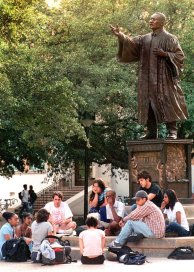 What and how much you do will be different from others. If you’re like most freshmen, you’re about to experience two important milestones: leaving home and living on your own for the first time, and adjusting to college life with new people and in new surroundings. Don’t think that you have to “keep up” with others around you, and don’t feel pressured to take part in activities that don’t interest you just to feel included. Certainly, you’ll want to try new things and expand your horizons, but this is your college experience, so make it your own. Take the time to find the pace that suits you. Keep in mind that sometimes less is more.
What and how much you do will be different from others. If you’re like most freshmen, you’re about to experience two important milestones: leaving home and living on your own for the first time, and adjusting to college life with new people and in new surroundings. Don’t think that you have to “keep up” with others around you, and don’t feel pressured to take part in activities that don’t interest you just to feel included. Certainly, you’ll want to try new things and expand your horizons, but this is your college experience, so make it your own. Take the time to find the pace that suits you. Keep in mind that sometimes less is more.
Go to Class
It sounds too easy, but this simple habit is, by far, the best way to thrive at UT. No, seriously. No . . . seriously. Just go to class. If you want to succeed at the University – as well as in life – you first have to show up!
On the first day of the semester, take a look around you. All of the other students enrolled in your class will be there. But after a week or two, especially for larger classes, you’ll notice that attendance has dropped off. That is, until the day of the first exam, when there’ll suddenly be a crowd of unfamiliar faces. A stranger might even be sitting in your usual seat! Who are all these people? Many are students who think they can cut class, just show up for the tests, and do well. My sincere advice is not to be one of them.
There are plenty of excuses for not going to class. Some seem legit, most are not: there’s a paper due and you want to spend more time on it, or you’d rather study for a big test you have later the same day. True, there’ll be times during the semester when one class needs more attention than the others, but make sure that you’re still attending all of them. If you miss one, it’ll take longer to catch up than if you were there. Besides, more professors are finding ways to reward those who come to lectures. Some let students know what’s best to study when preparing for tests. Others announce in advance there’ll be extra credit questions on exams, but the questions will be on topics only discussed in class. There may be days when you’re not all that motivated (remember, batteries not included), but if you go to class, you’ll find it’s easier to keep up with everything.
Professors are your Friends
Full stop. Raise your right hand and repeat: “I promise to meet all of my professors within the first two weeks of every semester.”
This is standard college advice, but many students never follow it. Some didn’t talk much with their high school teachers and have continued the habit. Others are a little intimidated. After all, professors are big-time experts in their fields and have other things to do. Would they want to bother with questions from a freshman? The answer is a definite “yes.”
All professors have office hours, designated times during the week when they’ll be in their offices to talk with students. But too often, usually for the reasons mentioned above, only a few appear at the door. “My office hours are a ghost town,” grumbles the lonely prof. Remember, a professor has made a career of research and teaching in a particular academic field, and has a genuine passion for their subject. A curious student, or one who just needs some help with homework and makes the effort to stop by, is welcome.
Introduce yourself to each of your professors within the first two weeks of the semester. Don’t have any questions about the class yet? No worries. Instead, find out more about your instructor. Where did they go to college? Why did they decide to be a professor, and how did they choose their field? What kind of research are they doing? You can also simply ask, “What’s the best way to study for your class?” Once you’ve broken the ice, conferring with your professor during the rest of the semester is easy.
Don’t forget, along with helping you with classes, professors can also be mentors, assist with student research opportunities, or be references for grad school or your first job after graduation.
Study like a Tortoise
Do you remember Aesop’s fable, The Tortoise and the Hare? A smart-alecky hare teases a tortoise about his slow, deliberate plodding until the irritated tortoise finally challenges the hare to a race.
At the start, the overconfident hare easily jumps into the lead. Certain that he has the race won, he stops to rest under a tree. When he accidentally falls asleep, the tortoise pulls ahead, and despite a last minute sprint by the hare, the tortoise crosses the finish line first. The moral of the story: slow and steady wins the race.
On the first day of class, each of your professors will distribute a syllabus that includes a description of the course, what textbooks you’ll need, how grades will be determined, the professor’s office hours, and a list of dates for exams, due dates for research papers, or other projects.
This may take a little effort, but create a calendar, either on your computer or something to hang on a wall, and fill in all the tests and other important due dates. You’re looking for a “big picture” view of the semester. You might discover that you have two tests and a paper due in the same week (Ugh!!), but at least you know about it early and can plan ahead.
For each exam, mark the date two weeks before it as the day to start studying. No, this doesn’t mean endlessly poring over your textbook for hours every night. Just start with a half hour or so each day. Review a week’s worth of lecture notes (Don’t just look them over, learn them.) or reread a chapter in the book. Is it a math class? Review one section in the text and work a few problems. A history course? Write out short descriptions of a few people or ideas that are likely to be on the test. As the exam nears, when other students are just getting started and will have to stay up late to catch up, you’ll discover that you already know most of the material. More important, you’ve allowed time for the ideas to “sink in” and truly understand them.
Academic sprinting – trying to cram lots of information into your brain at the last minute – usually results in extra stress and promptly forgetting all that you learned five minutes after the test ended, which means you’ll have to relearn it before the final exam. There’s an old saying: By the yard, life is hard. By the inch, it’s a cinch! Study like a tortoise, slow, steady, and in small pieces, and you’ll be much better off in the academic race.
College is Hard
To have been admitted to the University of Texas, you must have done well in high school. Earning good grades – perhaps straight A’s – may have been relatively easy. But graduating from a research university with all A’s is more difficult and less common. College is intense and challenging, and it’s designed to be that way.
It’s not unusual for a freshman who excelled in high school to struggle in at least one course. It happens. The first test is returned with a grade of “C,” or worse. A poor mark can be unsettling. It can shake self-confidence. “This never happened before,” some students think to themselves, and are embarrassed to tell anyone, including their family. A few resolve to study twice as long for the next test, only to wind up with the same result. They begin to doubt themselves, never realizing that it’s not the time spent studying, but how they study that needs to be remedied.
A few weeks into the semester, if you feel lost in a course, can’t finish the homework, not sure how take lecture notes, or just didn’t do well on a test, don’t panic. What you’ll discover is that, in the long term, you actually learn more from setbacks, from surmounting obstacles, than from breezing through with successes. What’s important is to figure out what went wrong and work to make it right. A lecturer in the business school is quick to tell his students, “Don’t let failure define you. Let it refine you.”
If you find yourself struggling, don’t keep it to yourself, and don’t wait. Use the many resources on campus to assist you. (Some assembly required!) Talk to your professor, classmates, and academic advisor. The Sanger Learning Center offers programs on study strategies and one-on-one tutoring, while the University Writing Center can assist with any and all writing assignments. Check with the UT Counseling Center for help with stress or test anxiety.
Remember, everyone, and I do mean everyone, is overwhelmed by college at some point. Struggling to learn is a time-honored part of the experience. But don’t hold off until the end of the semester. If you need help, seek it early.
College Knowledge
- Try to make friends as soon as you arrive on campus. Even if you think you’re shy, just remember that starting college is something new for all of your freshmen classmates, and everyone will be a little anxious.
- Participate in the 360 Connections and join a Freshman Interest Group – a FIG – where about 20 students attend many of the same classes and meet once a week. You’ll see familiar faces right away.
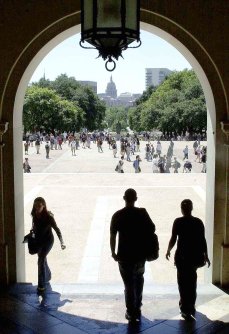 Textbooks are expensive. While the local bookstores are convenient, check online retailers (Amazon, Textbook.com, etc) and shop around. Keep in mind that a few classes – Calculus I and II (M 408C and M 408D), for example – use the same textbook. It might be less expensive to buy a used copy than rent the same book for two semesters.
Textbooks are expensive. While the local bookstores are convenient, check online retailers (Amazon, Textbook.com, etc) and shop around. Keep in mind that a few classes – Calculus I and II (M 408C and M 408D), for example – use the same textbook. It might be less expensive to buy a used copy than rent the same book for two semesters.- When you’re ready to register for courses, keep a map handy to see where your classes will meet. While 10 to 15 minutes are allowed for changing classes (depending on the day), you don’t want to have to sprint across the campus just to be on time.
- Each building has a three-letter abbreviation, which is part of the campus lingo. The Physics-Math-Astronomy Building is known simply as “PMA.” Lots of freshmen confuse the W.C. Hogg Building (WCH) for Welch Hall (WEL), which are next to each other.
- If you’re living on or near campus, you probably won’t need a car for your freshman year. Most of your time will be spent on campus anyway, and a car will just be an extra hassle. Besides, the University has an extensive shuttle bus system, and students ride for free on city buses. But if you need a vehicle, keep in mind –
- There are never enough parking spaces for students. Or for faculty and staff. A campus parking permit is better known as a “hunting license.” It’s easier with a garage pass, but pricey.
- Bicycles are a great way to get to and from campus, but are not as easy to ride during class changes. Remember, there’ll be tens of thousands of students and professors changing classes with you. Don’t forget to register and secure your bike. A U-lock with a flat key is best, though the UT Police Department recommends double locking your bike.
- Sit in the front half of the classroom. You want see what’s being written on the chalkboard or projected on a screen. If it’s a science class, the prof might have a physics or chemistry demo. Some claim sitting up front scores points with the professor. Maybe. But if you just show up, take part, and visit during office hours, they’ll get to know you. It’s more important simply to sit where you have a good view.
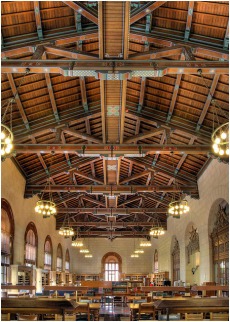
- Where to study? Your dorm room usually has too many distractions. Try a study lounge or a library. The Perry-Castaneda Library – the PCL – is popular, in part because you’re allowed to bring food with you. (Yes, students have pizza delivered to the PCL!) Another good place, especially for group study, is the first floor of the Flawn Academic Center, or the FAC. The most collegiate looking is either the Hall of Noble Words in the Tower or the Architecture Library on the second floor of Battle Hall (photo at right). It was originally UT’s first library building, opened in 1911. No food allowed, but great atmosphere.
- Bring an umbrella! It does rain in Austin occasionally, and you’d be surprised how many students forget. They trudge across campus in a downpour without any cover and show up to class drenched and dripping. It’s not pretty.
- Do your laundry on a weekday and avoid the weekend rush. (And don’t forget, hot water for whites, cold for colors!)
Break Out of the Burnt Orange Bubble
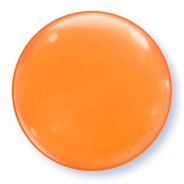 From classes to residence halls to student groups to football games, you’ll wind up spending much of your time on campus. But don’t forget to break out of the campus bubble now and then and explore the city of Austin. Visit the Texas Capitol, swim in Barton Springs, climb the steps to Mount Bonnell for an amazing view, or dress up for the giant Halloween party on Sixth Street. The Austin City Limits Music Fest and the South by Southwest Conference make international headlines for a reason. Be like the locals and go kayaking, paddle boarding, or sailing on area lakes, or running and biking on the trails. Or just enjoy some of the live music that’s everywhere: along Sixth Street, in cafes around town, and in some grocery stores. (Yep. In Austin, bands perform in grocery stores.) There’s something going on just about every weekend.
From classes to residence halls to student groups to football games, you’ll wind up spending much of your time on campus. But don’t forget to break out of the campus bubble now and then and explore the city of Austin. Visit the Texas Capitol, swim in Barton Springs, climb the steps to Mount Bonnell for an amazing view, or dress up for the giant Halloween party on Sixth Street. The Austin City Limits Music Fest and the South by Southwest Conference make international headlines for a reason. Be like the locals and go kayaking, paddle boarding, or sailing on area lakes, or running and biking on the trails. Or just enjoy some of the live music that’s everywhere: along Sixth Street, in cafes around town, and in some grocery stores. (Yep. In Austin, bands perform in grocery stores.) There’s something going on just about every weekend.
Better yet, just go away. If at all possible, participate in a study abroad program sponsored by UT’s International Office, if only for a summer. There are major-specific options where courses taken will count toward your degree, shorter summer programs led by UT faculty, and scholarships available to help with costs. If you haven’t traveled outside of the United States, to immerse yourself in a different culture, with its own language, food, and customs, where you are the visitor, is a great adventure and a guaranteed life-changing experience.
UT Phone Home
You’ll be busy, but remember to call, text, email, Facebook, Tweet, Tik Tok, Snapchat, Instagram, shout, or just wave in the general direction of home occasionally. Your family wants to hear from you.
Stop and Think
You’ve probably heard the adage: You can lead a horse to water, but you can’t make him drink. There’s a higher ed version: You can lead a student to college, but you can’t make them think!
In the 1950s, former UT President Harry Ransom described the campus as a “field of ideas,” and believed the pursuit of those ideas to be “one of the major undertakings of a university freshman. It is a highly personal undertaking, as unpredictable in its opportunities as it is in its rewards.”
Student life is hectic, but in between the barrage of classes, homework, and student activities, find some time to stop, think, and take stock. What are you learning this semester, and how does it fit into a overall view? How do your various courses – literature, science, business, history, engineering, culture – connect together? (They do.) “A student may choose his courses, pore over his texts, listen to his teachers, exchange opinions with his contemporaries,” wrote Ransom, “but still miss the main chance for developing ideas significant to him. If he is to complete the pursuit of ideas, he will get off by himself, shut up, and think. Too much higher education today neglects that lowly exercise.”
Why are You Here?
 Why go to college? Easy. By far, the most popular answer is “to get a job.” And it’s true. A college degree opens doors to more higher earning opportunities. At least one study claims a college graduate earns, on average, $1 million more over a lifetime than someone without a degree. But while you’re thinking about a career, keep in mind that there’s more going on here.
Why go to college? Easy. By far, the most popular answer is “to get a job.” And it’s true. A college degree opens doors to more higher earning opportunities. At least one study claims a college graduate earns, on average, $1 million more over a lifetime than someone without a degree. But while you’re thinking about a career, keep in mind that there’s more going on here.
If you go looking for the purposes of a college education, you generally find three distinct goals. The first is practical: to be more employable. Be aware, though, that some of what you’ll learn will eventually become outdated. A broader education that gives you the ability to grow and adapt to new things is best.
Your parents are a good example. They would likely have been your age in the 1990s or early 2000s. As they set out into the world – whether or not they went to college – they encountered new inventions such as email, the internet, e-commerce, smart phones, and social media, all of which radically altered the world and the workplace and created jobs that no one had yet imagined. After you graduate, the world will continue to change in surprising ways – artificial intelligence (AI) and augmented reality (AR) are the current hot topics. While you’ll have a major field of study, remember that a UT education shouldn’t limit you to a single profession. Let it prepare you to grow into professions not yet invented.
 A second reason for going to college has been boldly displayed on the University’s Seal for over a century. The Latin motto Disciplina Praesidium Civitatis comes from an 1838 speech by Mirabeau Lamar, a president of the Republic of Texas. He declared that a “cultivated mind is the guardian genius of democracy.” Lamar echoed the thoughts of John Adams in the 1700s, “Liberty cannot be preserved without general knowledge among the people.”
A second reason for going to college has been boldly displayed on the University’s Seal for over a century. The Latin motto Disciplina Praesidium Civitatis comes from an 1838 speech by Mirabeau Lamar, a president of the Republic of Texas. He declared that a “cultivated mind is the guardian genius of democracy.” Lamar echoed the thoughts of John Adams in the 1700s, “Liberty cannot be preserved without general knowledge among the people.”
After graduation, you will be more than your chosen profession. You’ll also be a voter, a juror, perhaps a leader in your community. To know and understand the issues of the day, to be able to articulate opinions and make educated choices, to be a participating citizen, all of this is crucial to the future.
The third aim of college is more vague and difficult to measure, but your time on campus will allow you experiences that might otherwise be unavailable. Perhaps it’s gaining an international perspective through travel, a refined appreciation for music, art, film, or architecture, a deeper understanding of classical literature, or a better grasp at the importance and wonder of the latest scientific discoveries. College isn’t just about learning to make a living; it’s also about learning what makes life worth living.
~~~~~~~~~~~~~~~~~~~~
 Don’t forget! There’s a great, mysterious box waiting with your name on it. Inside are surprises, adventures, challenges, and good times. Soon it will be time to open it. Before you do, pack some extra batteries. You’ll want all of the energy you can get!
Don’t forget! There’s a great, mysterious box waiting with your name on it. Inside are surprises, adventures, challenges, and good times. Soon it will be time to open it. Before you do, pack some extra batteries. You’ll want all of the energy you can get!
~~~~~~~~~~~~~~~~~~~~
A reminder: The UT History Corner is not an official publication of the University of Texas. The views and opinions expressed are those of the author.





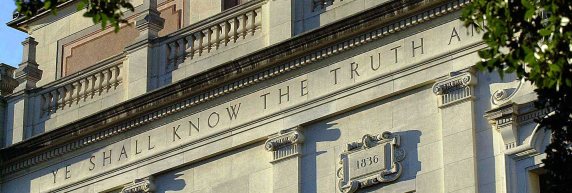




Wow! You packed so much information in this post. You are spot on in every way! Excellent as always Mr. Nicar!
Thank you, Rudy! I’m honored.
Jim, this is wonderful!! I’m going to save it and send it to all the freshmen I know. Thank you for taking the time to do this.
Jan
Thank you, Jan! I hope all is well with you.
What a class set of wisdom.
Thank you. I hope some of it is helpful.
Hi, I will be a UT freshman this fall. This article was very touching and written so poetically. There are so many things I want to do. I honestly cannot wait. Thank you for this article—I’ll come back to it often! I’ll tell you how it goes in 4 years when I graduate 😉
Many thanks,
-Chinonso
Thank you, and welcome to the UT community. I hope you’ll have many adventures – just be sure to go to class and meet your professors – and I look forward to hearing about your graduation.
This is exceptional advice and good for all students, even high schoolers. Thank you for writing such an amazing article for these kids!
What a great article. Thanks so much for all the recommendations. We will try to get our college kids to read this.
Such an amazing article. Can’t be better advice for any freshman. Thanks so much for wonderful writing. Students (and Parents) would definitely love to read more articles from you.